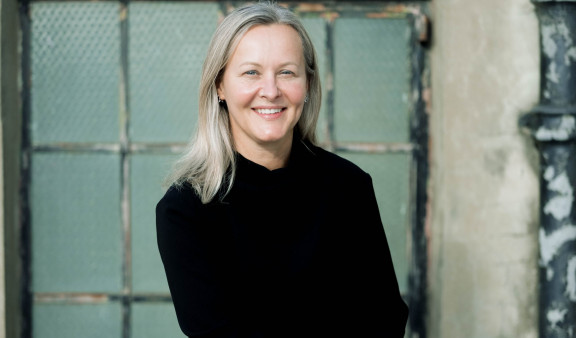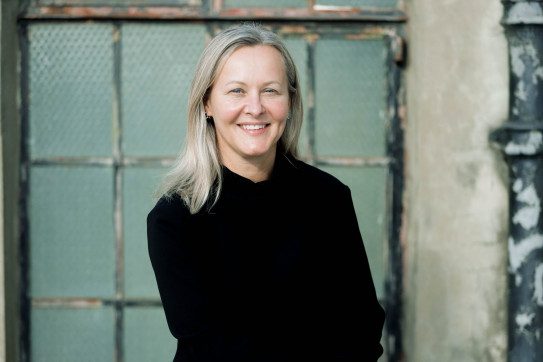
Part 1: Industry insights from some of the female members of the Redbox team in honour of International Women’s Day
Did you know female characters speak much less than male characters in Quentin Tarantino films even when they have the lead roles?
Or that women are significantly more likely to be injured in a car crash due to safety features designed for men? And what about the fact that women make up more than two-thirds of the world’s illiterate adults - and female access to education in some countries is such a problem that groups opposing female pupils still attack schools?
While there’s no doubt many countries have worked hard to improve gender equality, there’s still a lot of work to be done. It’s the reason why International Women’s Day – marked annually on the 8th March – has gone on to become a significant date on the global calendar.
With the first meeting taking place in 1911, the occasion celebrates “the social, economic, cultural and political achievements of women,” raises awareness about women’s equality and helps lobby for gender parity.
Tech is an industry often criticised as being proportionately female light. For instance, while the percentage of women in work in the US sits at 46.8 per cent, it drops to 34 per cent across the five largest tech companies and 28 per cent at Microsoft. Women remain underrepresented in software engineering (14 per cent of the workforce) and computer science related jobs (25 per cent). Some countries are attempting to address this imbalance with the introduction of STEM-based learning in primary schools which it is hoped will encourage more females to continue the journey into higher education, but it is clear cultural shifts are needed in many regions.
Redbox sits somewhere in-between, with 30 per cent of its roles globally taken up by women, but it is always keen to promote and empower women in the workplace and build a diverse and inclusive culture.
To mark International Women’s Day, we'll be doing a three-part series on some of the inspirational women at Redbox to learn more about their roles, work achievements and their thoughts on what more could be done to encourage women into tech.
Jo Murray, operations director. Worked at the London office for 11 years.
What does your day-to-day role look like?
I’m one of the longest-serving team members. I started when the agency was quite small and I’ve seen real growth. My role sees me get involved in all aspects of the business, helping to keep things moving and pulling the teams together. I’m the link between each office and each discipline and I try to keep everything running smoothly.
What’s your biggest work achievement?
Becoming Ops Director. I didn’t start off 11 years ago thinking this is where I would be. We were a small company with 15 people in London, but being around for as long as I have has given me lots of opportunities. I started off in office management and have grown into this role.
With tech looked upon as a male-dominated industry, did you overcome any obstacles to get to where you are in the workplace?
I’ve been lucky, I didn’t have to overcome anything. I work hard and voice my opinions and I think people respect that, no matter what sex you are.
There were only two women when I started at Redbox but that changed quickly as we grew. We now have lots of strong women here.
Is enough being done to encourage women into tech and ecommerce?
I think we are taking huge leaps in the UK, but perhaps some of the world isn’t as forward-thinking.
However, many women also need to change their mindsets. If we accept that tech is predominantly a male-dominated environment because that’s what we know and that’s how it has always been, what’s the incentive to change? It shouldn’t stop us from having a voice or following the paths we want to.

Jo Murray, operations director at Redbox
What do you think ecommerce will look like this year as bricks and mortar stores begin to re-open?
I’m a people person and I’m curious to see how it will pan out. I think there seems to be a lot of people happy to work remotely now, but as time goes on there will be more of an appetite to be together. We work better when we are together.
Ecommerce is booming and I think this is only going to become more intensive. We are lucky to work in this environment. But I do worry about our high streets. More people are shopping locally, however, our work is to make shopping online easier and more efficient. The UK, especially London, will bounce back but the question is how quickly?
Neha Thakur, project manager. Worked at the Redbox Mauritius office and now in South Africa for six years.
What does your day-to-day role look like?
I am currently managing Nespresso, which is one of the largest accounts for Redbox in MENA. I look after seven different Magento websites and day-to-day that means juggling multiple streams of work, people and priorities. I have a team of 10+ people, but this can go up to 15+ depending on the project’s parallel streams.
What’s your biggest work achievement?
One of the biggest would be a major Magento upgrade and infrastructure migration for all seven Nespresso websites over one and half months - without any major problems or issues. During Covid, ecommerce was critical for Nespresso as most of their bricks and mortar stores were closed. We had 20 different stakeholders across 16 sites and managing each one was a real challenge.
I am lucky to have an awesome technical team led by the amazing Sreerekha. She’s the only female lead backend developer in Redbox. As a team, we’re all very proud of our achievement.
Another career highlight would be building our support and QA capability in Mauritius and seeing our team grow from five employees to 30.
With tech looked upon as a male-dominated industry, did you overcome any obstacles to get to where you are in the workplace?
Not personally, no. I don’t remember being treated any differently for being a woman, I’m lucky. Historically, women were not considered to be technical and that’s why we saw more women in “softer” non-technical roles. I think that is changing but the gender mindset is always there. I started my career as a developer and moved into different technical roles over the years, and there were only a handful of females in these positions. We had to be strong in our convictions and voice our opinion to be taken seriously.
I’m not sure why there are so few women in tech, especially very technical roles, it could be that we don’t try for these jobs because we don’t have the skillset or because we are not encouraged to do so.

Neha Thakur, project manager at Redbox
Is enough being done to encourage more women into tech and ecommerce?
There are a lot of non-technical or management roles for women, but I think we have a lot more to bring to the table. There’s an expectation that if there is a problem, you need to be there and it’s not always possible for women with families to drop everything.
This could be one of the reasons why more women don’t go into more demanding tech roles with having to balance work and family life. More needs to be done on this front so it’s not a barrier. It also brings to light how a lot of cultures still view the role of the woman in the home and family life.
The change needs to happen at school and University levels and women need to be encouraged to take up more technical, science-based subjects. All too often, women see these subjects as male options - this belief has to change. Also we, as a society, and every parent needs to lead by example and teach every girl to be more confident and pursue their dreams – whatever that may be.
What do you think ecommerce will look like this year as bricks and mortar stores begin to re-open?
I think you will see people going out and shopping more but the upward trend towards shopping online will continue because it’s so convenient. Covid has definitely changed a lot of people’s perspectives.
My parents and relatives would never have shopped online but had to during lockdown. They’re now comfortable with it and understand how easy and convenient it is. They know their credit cards are safe, which was a worry for a lot of older people. You’ll see a new online demographic and customer-base emerge post lockdown with the older generation shopping more online.